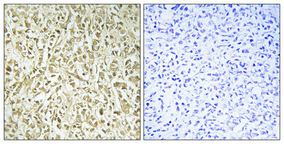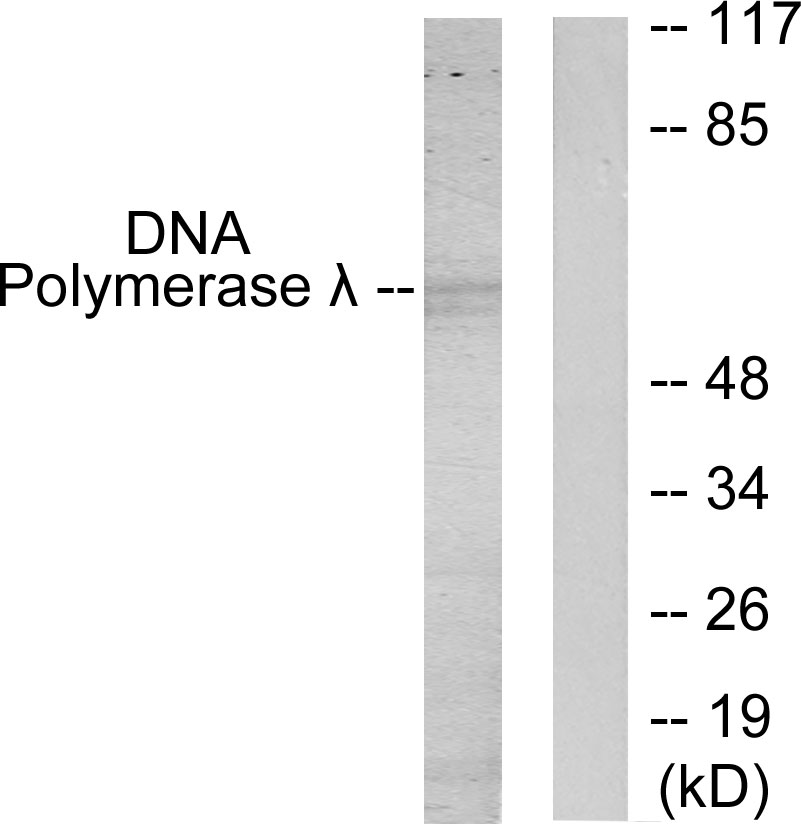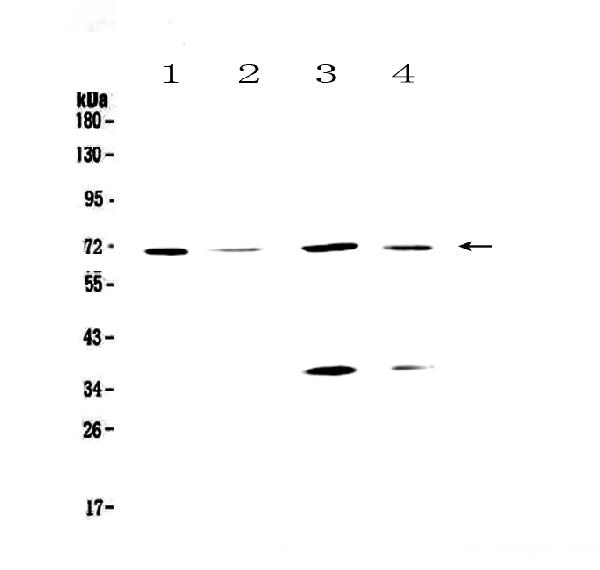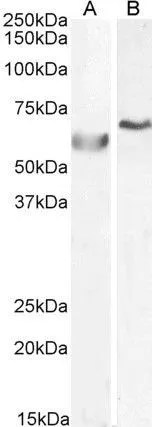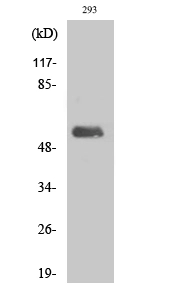
WB analysis of 293 cell lysate using GTX34129 DNA polymerase lambda antibody.
DNA polymerase lambda antibody
GTX34129
ApplicationsWestern Blot, ImmunoHistoChemistry, ImmunoHistoChemistry Paraffin
Product group Antibodies
ReactivityHuman
TargetPOLL
Overview
- SupplierGeneTex
- Product NameDNA polymerase lambda antibody
- Delivery Days Customer9
- Application Supplier NoteWB: 1:500-1:2000. IHC-P: 1:100-1:300. *Optimal dilutions/concentrations should be determined by the researcher.Not tested in other applications.
- ApplicationsWestern Blot, ImmunoHistoChemistry, ImmunoHistoChemistry Paraffin
- CertificationResearch Use Only
- ClonalityPolyclonal
- Concentration1 mg/ml
- ConjugateUnconjugated
- Gene ID27343
- Target namePOLL
- Target descriptionDNA polymerase lambda
- Target synonymsBETAN, POLKAPPA, DNA polymerase lambda, DNA polymerase beta-2, DNA polymerase beta-N, DNA polymerase kappa, polymerase (DNA directed), lambda, polymerase (DNA) lambda
- HostRabbit
- IsotypeIgG
- Protein IDQ9UGP5
- Protein NameDNA polymerase lambda
- Scientific DescriptionThis gene encodes a DNA polymerase. DNA polymerases catalyze DNA-template-directed extension of the 3-end of a DNA strand. This particular polymerase, which is a member of the X family of DNA polymerases, likely plays a role in non-homologous end joining and other DNA repair processes. Alternatively spliced transcript variants have been described. [provided by RefSeq, Mar 2010]
- ReactivityHuman
- Storage Instruction-20°C or -80°C,2°C to 8°C
- UNSPSC41116161

